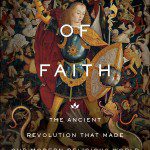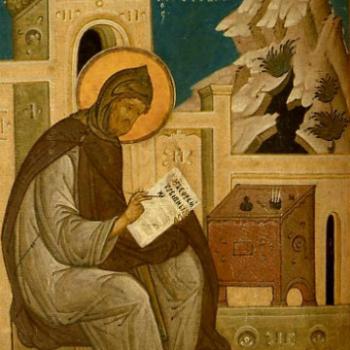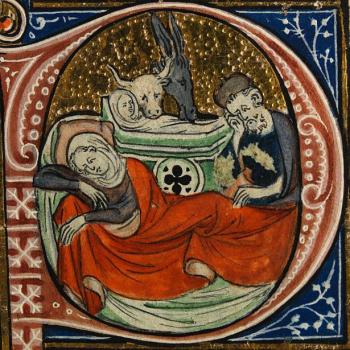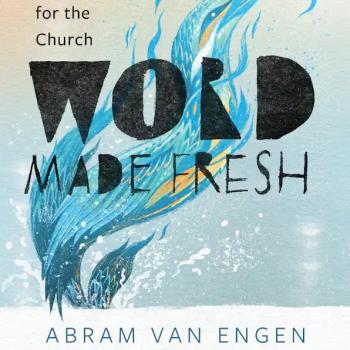On Thursday New York Times columnist David Brooks gave out what he calls the Sidney Awards. Named for philosopher Sidney Hook, they honor Brooks’ picks for the year’s best long-form essays — starting with a fascinating, troubling religious memoir by philosopher Candace Vogler.
Alas, none of my favorite Anxious Bench posts made Brooks’ list. But as 2019 draws to a close, I thought we could do something similar for our readers. Having already asked for their favorite books, I invited our contributors to join me in sharing some of their favorite articles and blog posts on history, religion, politics, culture, and other topics. Here’s what they recommended:
Kristin Du Mez
As a white Christian who came of age in a predominantly (okay, pretty much exclusively) white space, I’ve found it necessary to continually educate myself on both the whiteness of the American Christianity of which I’ve been a part, and on the diversity of experiences within the American church. Two opinion pieces written by historians this past year stood out to me in this regard.
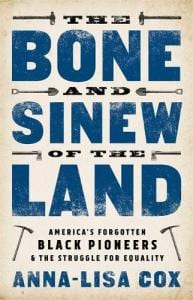 First, Anna-Lisa Cox’s essay “When Anti-Immigration Meant Keeping Out Black Pioneers” (New York Times), based on her book The Bone and Sinew of the Land. Cox helped me understand what I should have already known — that the very whiteness of my Midwestern upbringing had its own history, that African American migrants were intentionally excluded from settling in Midwestern states in the 1850s.
First, Anna-Lisa Cox’s essay “When Anti-Immigration Meant Keeping Out Black Pioneers” (New York Times), based on her book The Bone and Sinew of the Land. Cox helped me understand what I should have already known — that the very whiteness of my Midwestern upbringing had its own history, that African American migrants were intentionally excluded from settling in Midwestern states in the 1850s.
Second, Jemar Tisby’s op-ed, “White Christians, do not cheapen the hug and message of forgiveness from Botham Jean’s brother” (Washington Post). As the author of The Color of Compromise, Tisby knows the history of evangelicals and race as well as anybody, and he brings this knowledge to bear in his analysis of the white evangelical embrace of an easy and convenient “forgiveness” that minimizes the communal pain and depth of injustice in cases such as the murder of Botham Jean.
David Swartz
James Guth’s sobering article, “Are White Evangelicals Populists?” (Review of Faith & International Affairs), is not the favorite article I’ve read this year, but it may be the most important. Guth shows that the “Populism Syndrome” — marked by “nationalism,” “authoritarianism,” “rough politics,” and “compromise bad” — is disproportionately practiced by evangelicals. Guth finds that “Populist Syndrome scores are a better predictor of a Trump vote among Evangelicals in 2016 than are party identification and ideology combined.” He continues, “White Evangelicals share with Trump a multitude of attitudes, including his hostility toward immigrants, his Islamophobia, his racism and nativism, as well as his political style, with its nasty politics and assertion of strong, solitary leadership.”
Tal Howard
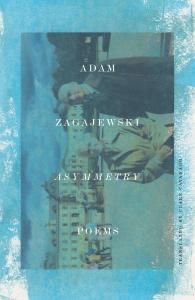 Many political debates these days assume a fundamental difference between “cosmopolitans” (educated beneficiaries of globalization who want a world of open borders and markets) and “nationalists” (less educated victims of globalization who want to protect local forms of identity and place restrictions on markets and borders). But is there a third way? Ian Corbin suggested that there is in “Rooted Cosmopolitan” (First Things), an essay in which he engaged with the work of the Polish thinker and poet Adam Zagajewski.
Many political debates these days assume a fundamental difference between “cosmopolitans” (educated beneficiaries of globalization who want a world of open borders and markets) and “nationalists” (less educated victims of globalization who want to protect local forms of identity and place restrictions on markets and borders). But is there a third way? Ian Corbin suggested that there is in “Rooted Cosmopolitan” (First Things), an essay in which he engaged with the work of the Polish thinker and poet Adam Zagajewski.
Andrea Turpin
At the start of Advent, Tish Harrison Warren wrote a beautiful reflection for the New York Times on the significance of the season leading up to Christmas. At the end of a year, I too need time to grieve sin and brokenness and long for better before entering into the joy and hope of Christ’s coming.
Chris Gehrz
I’ll echo Andrea’s nomination of Tish Harrison Warren, who is as good explaining Advent to Times readers as she is explaining vaginal imagery in Christian art to readers of Christianity Today.
But as impressive to me were two women who sought to write thoughtfully about that most polarizing of issues: abortion. In Religion & Politics, Marie Griffith drew on history and ethics to warn that “certitude can cut both ways.” And in what was generally a strong year for The Atlantic, one of its most thought-provoking pieces had an American ob-gyn named Chavi Eve Karkowsky reflect on how practicing medicine in Israel took her to “the outer borders of my pro-choice beliefs.” (On this same topic and from that same publication, Brooks recommended this recent article by Caitlin Flanagan.)
John Turner
Reading Alan Jacobs’ “Tending the Digital Commons” (Hedgehog Review) is like encountering Hans Jonas and Gandalf in one humbling and challenging essay. “Those of us who live much of our lives online,” declares Jacobs, “are not faced here simply with matters of intellectual property; we need to confront significant choices about the world we will hand down to those who come after us.” Jacobs poses uncomfortable questions and dares us to answer them.



